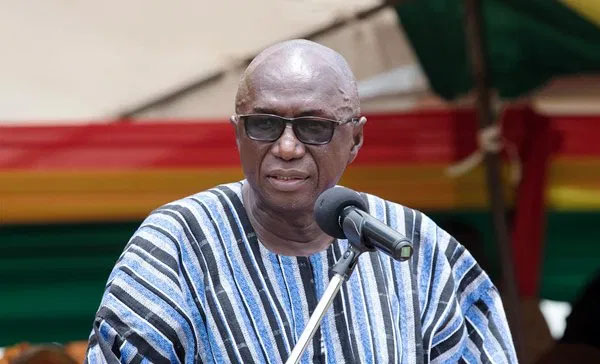Ambrose Dery
THE MINISTER of the Interior, Ambrose Dery, says a total of 5,984 foreigners have been intercepted using unapproved routes to enter the country since the closure of the borders in the wake of the Covid-19 pandemic.
According to him, 1,702 were Togolese, while 1,414 were Burkinabes, and 482 from other countries.
Responding to questions on the Floor of Parliament yesterday, the minister stated that the foreigners were intercepted by officers of the Ghana Immigration Services (GIS) between March 30, 2020 and May 2, 2020.
“Under the current regime, particulars of all cargo trucks passing through our borders are taken, including the names of drivers and their mates. This is shared with the Ghana Immigration Service commands of their (people’s) destination points for the commands to refer the people to the Ghana Health Team for screening.”
He said between April 6, 2020 and May 28, 2020, a total of 10,611 trucks had come through Ghana’s borders, with 19,172 drivers and mates after the closure.
“The GIS, among other actions taken, first sensitized border communities to cooperate and prevent illegal entry. Intelligence gathering on suspected foreign nationals smuggled into the country through unapproved route, as in the case of the eight Guineans and two Burkinabes arrested in Tamale in the Northern Region,” he disclosed.
The Interior Minister indicated that the government also enhanced enforcement operation through monitoring of activities of the foreigners in hostels, hotels, apartments, markets and other places.
Mr. Dery assured the House that the government was doing all it could to ensure that the borders remain closed in line with the measures to contain Covid-19.
The country’s international borders were closed to human traffic effective March 22, 2020 to contain and manage the Covid-19.
The Interior Minister admitted that the country’s borders were highly porous, with several unapproved routes. He asserted that the government had put in place a multi-agent taskforce to assist the lead agencies for the protection of the borders.
By Ernest Kofi Adu, Parliament House


